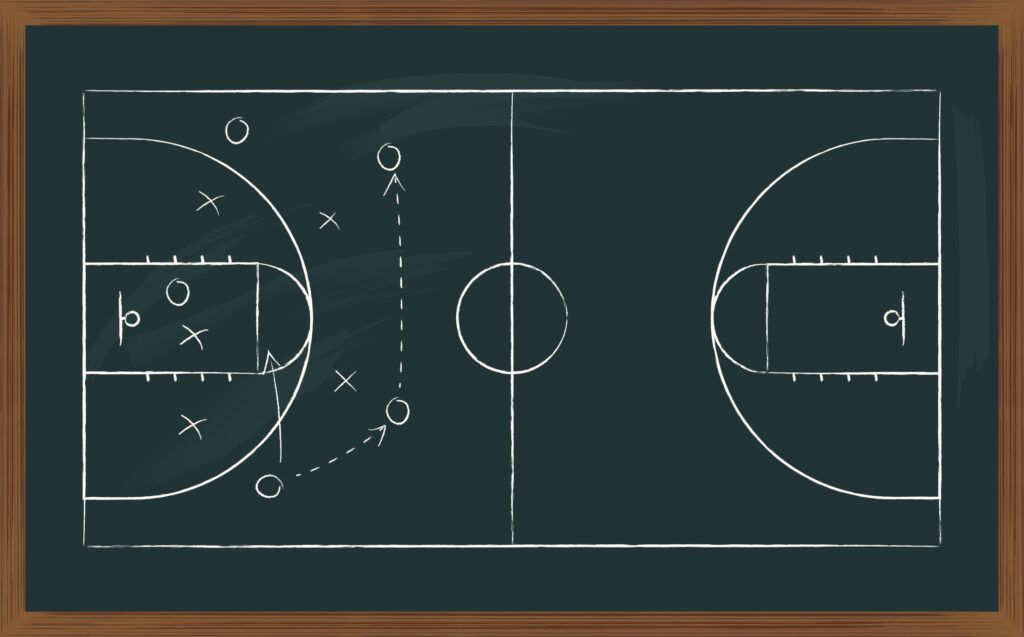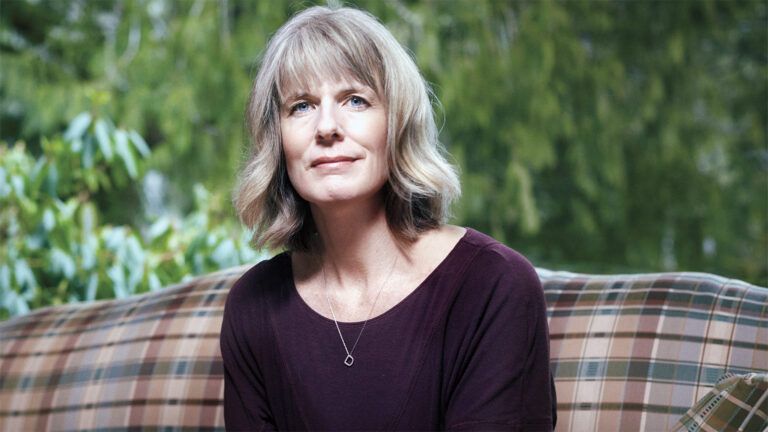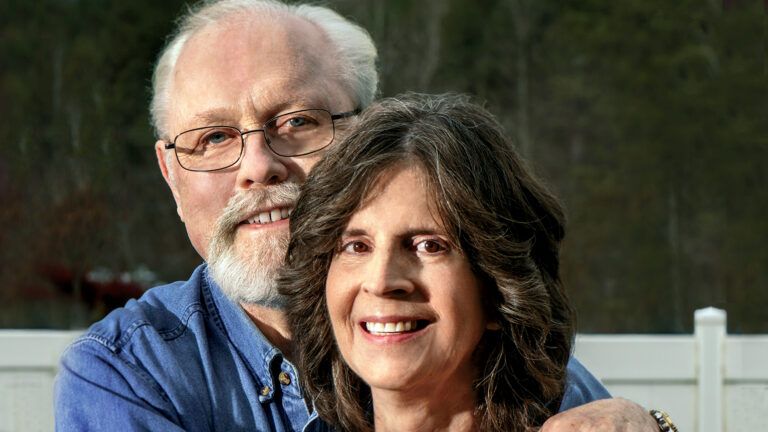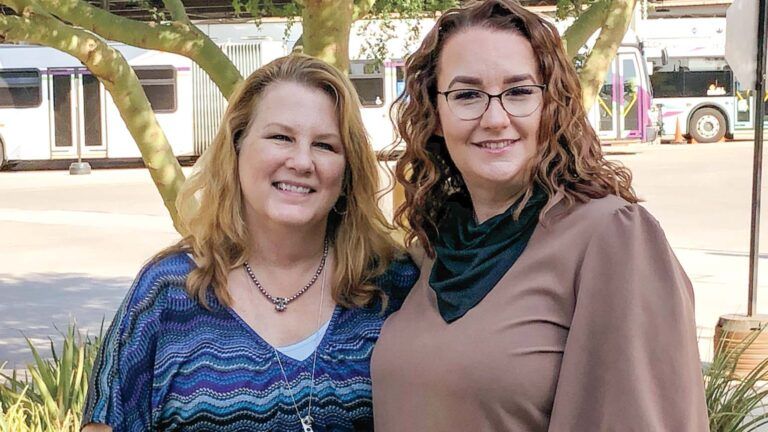I’m a coach—a high school golf and basketball coach. That means more than you might think. Coaching is a job. But it’s also an identity. To my players I’m a mentor, an encourager, a disciplinarian and a strategist all rolled into one. Most important, I’m an example. I show my kids how to win games and how to be people of faith and integrity.
That’s actually the part of my work I love best. My office is messy with papers, schedules, books, sports equipment and even a few awards, including my induction into the state’s Basketball Hall of Fame. But nothing means more than watching my players at graduation, seeing them transformed from nervous freshmen into responsible young adults, ready to step out into the world with confidence.
Which is why, when it suddenly looked like I might lose my job—might lose my life—a couple of years ago, I didn’t know how to react. I had been coaching at Lutheran West High School for 38 years. When it came to my own health, though, I had no set game plan.
It all started one Friday in the gym. I was 59, working out to keep up with my players and students. I was on the abdominal machine, doing sit-ups with weight resistance. I bet I could increase that weight, I thought, and added a few more pounds to my load. I did a crunch. Ouch. Come on, Coach. Another. Hot pain seared my lower abdomen. What was going on?
I tried another, tentatively. The pain was so intense, I fell back, gasping. Embarrassed but determined, I finished the workout and staggered to work.
I thought the pain would ease—I just needed to get used to the new weight. But it lasted all that day. And the next. By Sunday, I knew something was wrong. My roommate Cindy drove me to the emergency room, where doctors told me my abdomen was so filled with fluid, they couldn’t make a diagnosis. “You need to see your gynecologist,” they told me. “Right away.”
I’m fine, I told myself the next day in the gynecologist’s waiting room. I pictured myself at the gym, on the court, taking camping trips I so loved in Ohio state parks. But the doctor immediately ordered several tests, including a blood test for ovarian cancer. God, please, no.
Two days later I returned to the gynecologist for the results. The pain had gone away, and so had my worry. I was eager to get back on the ab machine.
“Karen,” the doctor said, coming into the room with a strangely grave expression, “why don’t you sit down?” He opened a chart. “This particular cancer test scores results numerically. A score below 35 is normal. Yours is…” he paused, “900.” I looked at him.
“Of course,” he continued quickly, “there’s always the chance of a false positive. We’ll have to operate to determine that. I’m sorry to have to deliver this news, though.”
I sat stock-still. Me, in the hospital, under anesthesia? Cancer? I couldn’t quite picture it. My mind spun, thinking of my players, the upcoming season—and then, weirdly, my office at school, scattered with trophies and plaques and papers. If I die, who will clean it?
That night, I lay awake, still not comprehending—not admitting—the doctor’s words. My grandmother, my cousin and several others in my extended family had died of cancer. But I was so healthy. I’m an athlete! How can I be a coach if I have cancer? I tried to pray. God, I began, oh, God…. But no coherent prayer came.
Come on, I thought. I prayed every day—for my players, for our games, for people at church, for friends and family. But what was I supposed to pray for now? I’m not going to have cancer, I finally decided. The doctor had said false positive, so that’s what it was going to be.
READ MORE: A CHAMPION COACH WITH FAITH, COURAGE AND COMMITTMENT
Wheeling into the operating room, I felt oddly calm. My pastor and several close friends performed a healing and anointing service. My brothers, who had driven from Missouri, sat outside in a waiting room. False positive, I thought as the anesthesia kicked in.
I came to in a recovery room. When I had stabilized, the surgeon came in and sat by my bedside to discuss the operation with me. “I’ve got some good news and some bad news,” he said. “Which do you want to hear first?”
“The bad,” I said. He took a breath.
“Okay. We removed a nine-inch tumor from your abdomen.” He paused to let that sink in. “You have clear cell carcinoma, the most aggressive kind of ovarian cancer. You need chemotherapy immediately—six treatments three weeks apart.
“Now, I know you teach at school. If everything goes well and you stay on schedule, the treatments should be completed by fall. Of course, you may not really feel like going back in to work.”
“Tell me the good,” I said quietly.
He brightened. “Your cancer is only stage two. That means it hasn’t spread to the lining of your abdomen or, from what we can tell, to the lymph nodes. If the chemotherapy treatments are successful, you could beat this thing.”
Days later I left the hospital, still in a fog. The first chemotherapy treatment was scheduled right away—for June 1, two days before graduation. “You’ll probably have to miss that graduation,” a nurse told me. Oh, no, I won’t, I thought. I hadn’t missed a single graduation in 38 years. Cancer was not going to change that. My students would see the same old Coach Wittrock.
The treatment was pretty straightforward. Nurses hooked up an IV and dripped a combination of three cancer drugs, plus medicine to help with side effects, into my body. It took eight hours. I felt fine. Miss graduation—humph.
The next day, my legs and head throbbed. The day after, I awoke and crawled into the bathroom, sicker than I’d ever felt. I could barely lift my head from the floor. “Cindy,” I croaked, “I need to call the school. I can’t make it to graduation.”
So it went the rest of the summer. Every treatment left me weak and sick, wanting to close my eyes and give up. Nothing I did helped. There was no routine, no workout, no plan that could make me strong enough to withstand those chemo drugs. And they didn’t even come with a guarantee! Cancer, even when apparently in remission, can come back without warning.
Vulnerability without end. How was I supposed to cope with that? How was I supposed to live my life?
One weekend, after I had recovered some from a round of treatment, I decided to get out of the city and do some camping. I needed fresh air, to clear my head, to surround myself with God’s creation. Summer was advancing—which meant school was drawing near. What would happen when I went back—assuming I went back? I wasn’t the same Coach Wittrock. I was thin, bald. I felt sick.
What would students think? Would I be able to get on the court and coach like I had before? What kind of example would I set? The questions themselves exhausted me.
I packed fishing gear, drove to my favorite state park and walked to a beautiful lake. I spent a day fishing and reading, listening to wind in the trees, watching the sky reflected in the rippling water. So serene. So whole. God is good, I thought to myself.
Dusk fell and I went to bed in my motor home. Insects chirped. The lake lapped at the shore. Its rhythms lulled me to sleep and I found myself dreaming—more vividly than I usually dream. I saw a white light, brilliant and strong, descend from somewhere above and wrap around me like a blanket. Somehow I knew it was angels. Have they come to take me to heaven? I wondered.
But immediately I knew they hadn’t. They hovered, clearer now, their shapes concrete and yet indistinct. And then they vanished. I woke with a start. It was dark. The lake had stilled. From somewhere, a voice came to my thoughts: You will be healed.
The voice departed as quick as it came. But that word stayed with me. Healed. What did it mean? I thought of a verse from Exodus: “Stand firm and watch for the Lord’s deliverance.” God, I suddenly realized, was going to heal all of me. Not just my strong, athletic body, given back to me, as if nothing had happened. No, he would heal my spirit too.
Trust in me, the voice seemed to say. I will never forsake you. I sighed, peace settling over me like I hadn’t felt in months. And I drifted back to sleep.
I had more chemotherapy after that—five more rounds, in fact. And I developed an allergic reaction to some of the medication, requiring two final sessions overnight at the hospital. But as the start of school approached, I grew more and more excited.
I was not, I knew, the same Coach Wittrock. I was thinner, balder, weaker—everything that I had feared. But none of that mattered. Dependence on God was my strength—vulnerability, met with prayer and thanksgiving—the example I could set for all of my students.
I arrived the first day of school in a baseball cap. I knew I wasn’t up to coaching full time, full strength, so I asked my assistant coach, a parent volunteer, to help. He was there with me as the students trickled in, gathering around, some of them staring surreptitiously, questions in their eyes.
I explained about the cancer, told them I might miss some days here and there, might not be mixing it up with them as vigorously as I had before. They didn’t seem to care.
“We’re so proud of you, Coach!” someone called out.
“Yeah,” said another. “Great hat too.”
“Let’s practice!” a few cried. And that’s just what we did.
Download your FREE ebook, True Inspirational Stories: 9 Real Life Stories of Hope & Faith.






